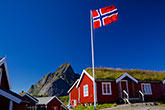Gas OPEC seek to control prices
The Gas Exporting Countries Forum includes Russia, Iran, Qatar and nine other member states; together they control 70% of world gas reserves. However, the last two years have seen a massive drop in LNG prices brought on by global recession, and the fact that Qatar has risen its production levels by 44% this year, creating a supply glut. The problem is further complicated by the emergence of the ‘game-changing’ energy-supply shale gas, which has led to North America imports of LNG falling further. North American LNG prices are now down 28% on their December 2009 levels.
In the face of this oversupply, LNG producers are starting to feel a little hard done by; the Algerian Energy Minister, Chakib Khelil, formally called on members of the GECF at a meeting in Oran at LNG 16 to reduce output and end the supply glut, in words that are very reminiscent of OPEC.
Currently, gas is sold on multi-year contracts of up to 25 years, which are linked to oil prices, but increasingly a two-tier pricing market is emerging in Europe. This has occurred because supplies originally intended for North America are instead being sent to Europe to fetch a higher price, which has the overall impact of driving down prices in Europe too.
“This is mostly hurting Russia and Algeria, as some of the Qatari volumes earmarked for the United States now will compete for European market shares, where the two counties have previously dominated,” said Samuel Ciszuk, energy analyst for IHS Global Insight. The gas coming in to be sold on the spot market is now stealing market share away from the more profitable long term contracts, which are linked to oil prices. With the price of crude oil shooting up by 71% last year, so did the price of natural gas, this has led many large importers such as EON AG to buy more LNG on the spot market and limit contractual supplies.
This two-tier pricing system lead Chakib Khelil to call for a reduction of sales on the European spot markets in Vienna back in March, he also said that a price of US$ 13 – 14 per Btu was the target price, as crude oil is near the US$ 80 mark. However it may be harder to influence gas prices than Khelil thinks, according to analysts. “ The producers are living in a fantasy world if they think they can influence prices by cutting production”, said John Fahy, MD of energy consultants Eras Ltd.
The other members of the GECF seem to agree with this analysis, Qatar and Russia have signaled that this is not the way forward. The Russian Energy Minister Sergei Shmatko said this, “ It would be difficult to reduce output as a way to influence prices.” The Qatari Energy Minister also said last month that they have no plans to reduce output. Egypt has also said that they are unwilling to cut production.
However, that does not mean that they will do nothing, the members are instead going to push for better price-indexing of natural gas. Russia’s Energy Minister said that members would try to “solve the conflict between long-term and short-term gas contracts.” He also said that participants had agreed to “prevent any type of competition between different types of gas.”
Read the article online at: https://www.lngindustry.com/liquid-natural-gas/21042010/gas_opec_seek_to_control_prices/
You might also like
Gasum opens new biogas filling station in Norway
Gasum has opened its ninth bio-LNG station in Norway, located in Førde.

